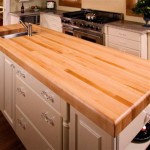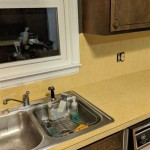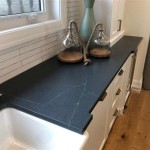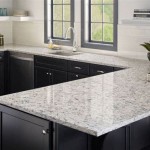Are Butcher Block Countertops Sanitary?
Butcher block countertops are a popular choice for kitchens due to their durability and natural beauty. However, some people have concerns about their sanitary properties. Here is a detailed examination of the sanitation of butcher block countertops:
Natural Antimicrobial Properties
Butcher block countertops are made from wood, which has natural antimicrobial properties. Studies have shown that wood contains compounds called tannins and lignins, which can inhibit the growth of bacteria and mold.
Proper Maintenance
Regular cleaning and maintenance are essential for keeping butcher block countertops sanitary. Use a mild soap and water solution to clean the surface, and be sure to dry it thoroughly after cleaning. Avoid using harsh chemicals or abrasive cleaners, as these can damage the wood.
Regular Oiling
Butcher block countertops should be regularly oiled to protect the wood and prevent bacteria from penetrating the surface. Use a food-safe oil, such as mineral oil or butcher block oil, and apply it according to the manufacturer's instructions.
Frequency of Use
The frequency of use can impact the sanitation of butcher block countertops. Countertops used for food preparation should be cleaned and disinfected more often than those used for less frequent tasks.
Potential Contamination
Like any surface, butcher block countertops can become contaminated with bacteria if not properly cleaned and maintained. Raw meat, poultry, and fish can contain harmful bacteria, so it is important to clean the countertop thoroughly after handling these foods.
Disinfecting
While regular cleaning and maintenance can help reduce the risk of contamination, disinfecting the countertop occasionally can provide extra protection. Use a food-safe disinfectant, such as a bleach solution or a commercial disinfectant designed for food contact surfaces.
Comparison to Other Materials
Compared to other countertop materials, butcher block countertops have comparable sanitary properties. Granite, quartz, and stainless steel are also non-porous and easy to clean, making them suitable for use in kitchens.
Conclusion
Butcher block countertops can be sanitary when properly maintained. Their natural antimicrobial properties, combined with regular cleaning, oiling, and disinfecting, help keep them safe for food preparation. By following proper maintenance practices, you can enjoy the beauty and durability of butcher block countertops while ensuring their sanitary condition.

Are Butcher Block Countertops And Islands Sanitary

Myths About Butcher Block Countertops That You Should Stop Believing

Butcher Block Countertops Pros And Cons To Consider Before Installation

The Unsanitary Mistake You Re Making When Cutting On Butcher Block Countertops

Are Butcher Block Countertops And Islands Sanitary

Complete Guide To Butcher Block Countertops

Wood Countertops Everything You Need To Know Heather Hungeling Design

How To Clean A Butcher Block Countertop

Butcher Block Countertops Is It The Right Fit For Your Kitchen

How To Clean A Butcher Block Countertop








